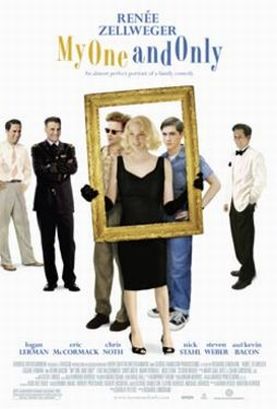Quills
Philip Kaufman’s Quills,
based on a play by Doug Wright, who wrote the screenplay, is a perfect
illustration of the fact, which I may have mentioned once or twice before in
these reviews, that it is now impossible for Hollywood to make a movie about sex
which is not at the same time propaganda for the vulgar Freudianism that is the
nearest thing to a philosophy — or a
religion — that the movie culture has.
This — to
remind — is the implicit doctrine of the
evils of
“repression.”
Giving expression to all of one’s
sexual impulses is not only not wrong, it is right and good and necessary for
psychic health. The alternative is to end up as (pleonastically) evil and
twisted and
“repressed”
as, say, Kenneth Starr. Over and over and over again Hollywood preaches this
doctrine to us, so that one begins to wonder: if sexual repression is evidently
wrong, why do we have to be so insistently and emphatically persuaded of the
fact?
Quills, set during the Napoleonic period in France in the insane
asylum at Charenton when it housed the Marquis de Sade (Geoffrey Rush), offers
us not one but two examples of the evil consequences of this repression. They
are Dr. Royer-Collard (Michael Caine), a quack doctor whose sadistic methods of
treating the insane are clearly meant to be seen as themselves a form of
insanity, and Charlotte (Elizabeth Berrington), the fellow servant of our
virginal but very sexual heroine, Madeleine (Kate Winslett). Charlotte is the
only one of the servants to whom Madeleine reads the romances of the wicked
Marquis to express any moral disapproval of them and so, naturally, is (like the
doctor) complict in the destruction of the poor Marquis and the murder of poor
Madeleine.
So obsessed is the film with its demonstration that sex is healthful and
hygienic that it forgets to make sex
attractive — unless, perhaps, you are a
sadist or a masochist. Indeed mass-masochism is the only conceivable explanation
why the movie has done as well as it has at the box-office. You have at the
least to have a very highly developed taste for pornography to find the
Marquis’s overheated prose other than
comic, let alone erotic. And the depiction of French peasants, even those of the
revolutionary era, routinely gathering in lascivious co-ed groups to listen to
it, and then acting out at least some of the exotic fantasies it has to offer is
a little far-fetched to say the least. Maybe there were Dionysian frenzies of
fornication in France during this era, but they could hardly have been inspired
by such anaphrodisiac
“art”
as Sade’s.
Yet the alleged artistry of his prose is even more important to the
filmmakers than the example of his sexual libertinism — which we have to
take on faith, since the combination of imprisonment and what looks like
impotence makes him a non-practicing theorist throughout the film. It is as an
artist that he is meant to elicit our admiration, a man who continues to write
in his own blood on his bed-sheets when the wicked Doctor and his reluctantly
compliant colleague, Abbé Coulmier (Joaquin Phoenix), deprive him of his
writing materials. The Abbé is at first an enlightened jailer, inclined
to believe (just like a Hollywood screenwriter!) that his
prisoner’s writing is
“a purgative for the toxins in his
mind,” but the combination of
political pressure and his own sexual hang-ups (though a priest, and thus an
educated man, he is irresistibly
but — we are to understand — very
high-mindedly attracted to the laundress, Madeleine) work upon him to produce
the concluding tragedy.
This, as I say, is the putative tragedy of all sexual repression and all
political oppression, the two being seen as (as usual) practical equivalents. At
any rate, where there is one you invariably find the other. If you are a
believer in this romantic myth, you may conceivably find something in
Quills (whose title is a bi-lingual pun on the Latin origin of
“penis” )
to enjoy. But even in this case you may find yourself a little doubtful about
the character of the maidenly Madeleine, supposed to be a Sadean groupie because
“I see myself in his stories; I put
myself in each part, each strumpet, each
murderess.” Such imaginative
promiscuity is scarcely more believable than the sexual
kind — and much less visually
interesting.
Discover more from James Bowman
Subscribe to get the latest posts to your email.





